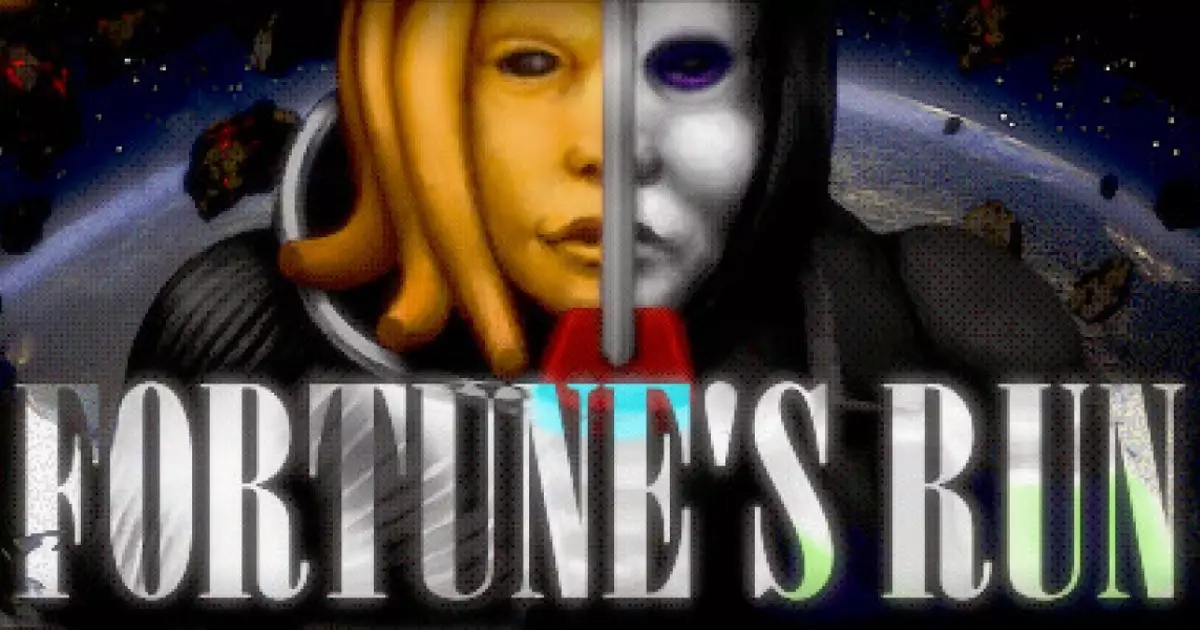In a startling turn of events, the sole creator of the immersive sim-shooter *Fortune’s Run*, Dizzie, revealed that development on the project will cease for an undetermined period. This abrupt hiatus is not just due to creative reasons or market dynamics, but rather a personal crisis that culminated in a three-year prison sentence for Dizzie, stemming from a violent crime. This tragic shift in circumstances follows a lengthy five-year legal battle that leaves fans and the gaming community at large grappling with a mixture of disbelief and sympathy.
Dizzie’s decision to announce the hiatus in a heartfelt Steam post adds a layer of personal vulnerability to the situation. In an era where game developers often portray themselves as nonchalant creators behind digital avatars, Dizzie’s candid admission of past traumas and their consequences breaks the usual mold. This vulnerability makes one ponder not only the toll that gaming culture can inflict upon developers but also the personal histories that exist behind the pixels of today’s most engaging universes.
Personal crises are, unfortunately, a common narrative in various industries, yet their implications run particularly deep in the tight-knit world of game development. Dizzie’s case serves as a poignant reminder of the human struggle often hidden beneath the surface of game production. Many creators dedicate not only their skills but also considerable emotional investment into a project, and when personal turmoil occurs, the ramifications can lead to devastating interruptions.
Dizzie’s legal woes and subsequent incarceration is a stark illustration of how life circumstances can derail dreams, even for skilled and passionate developers. The announcement of Arachne’s departure from the team, largely due to health complications following a surgical procedure, compounds the tragedy. As Dizzie confirmed, Arachne’s exit was not related to the legal issues; rather, it was a consequence of her own ordeal. Nevertheless, it brings to light the vulnerability of small teams that rely on each member to carry the weight of development.
While the fate of *Fortune’s Run* remains in limbo, there’s a sliver of hope stemming from Dizzie’s statement that the game’s existing sales are sufficient for their sustenance post-incarceration. Many creators have had to navigate through rough waters before emerging stronger, and Dizzie’s resolve hints at an ambition that could reignite *Fortune’s Run* upon their return. “I am extremely passionate about this stuff and I’m never going to stop making games,” they declared, showcasing a determination that is commendable given the circumstances.
What’s particularly fascinating is Dizzie’s approach to the game’s development, hinting at having laid the groundwork for what lies ahead. The work put into stubs and prototypes speaks volumes of the creator’s dedication and foresight. It poses an intriguing question: How might *Fortune’s Run* evolve after this hiatus? The gaming community could witness a transformation not just in the artistry of the game but also in its narrative, potentially reflecting Dizzie’s own journey of confrontation and resilience.
The gameplay community’s reaction to this shocking announcement has been overwhelmingly sympathetic. Fans and fellow developers have taken to discussions on forums and social media to express their concern and understanding. There’s an undeniable urgency to humanize figures within the gaming industry, especially as they navigate such complex realities. Perhaps this event can serve as a catalyst for broader dialogues about mental health and support networks within the gaming community, acknowledging that behind every game, there are people facing their struggles, ambitions, and failures.
In light of this situation, one must recognize that life can dramatically alter a creator’s trajectory, steering them into unforeseen challenges. The story of *Fortune’s Run* exemplifies the convergence of personal history and creative expression, emphasizing that the digital realms we engage with often intertwine closely with the human condition, encompassing resilience, hardship, and ultimately, the will to continue. As fans await Dizzie’s return, their emotional investment in the journey reflects not only a passion for gaming but a deep-seated understanding of the creators behind the craftsmanship.
While the future of *Fortune’s Run* may be currently uncertain, its journey thus far encapsulates a narrative that resonates deeply within the fabric of the gaming industry, showcasing that the challenges faced by developers extend far beyond mere code and design.

